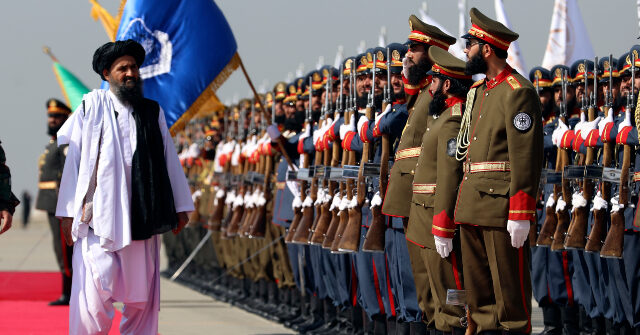The Taliban, now the ruling entity in Afghanistan, publicly acknowledged the recent election victory of President-elect Donald Trump, recognizing his earlier efforts during his first term to withdraw U.S. troops and end the prolonged conflict in Afghanistan. In a statement from its “foreign ministry,” the Taliban expressed hope that a second Trump administration could enhance U.S.-Afghan relations and potentially contribute positively to broader conflicts, including the ongoing war between Israel and Hamas in Gaza. This acknowledgment indicates the Taliban’s interest in fostering a more constructive relationship with the U.S., particularly as it aims to solidify its control and seek international legitimacy.
Trump’s election is historically significant, marking only the second instance in U.S. history of a president serving non-consecutive terms, following Grover Cleveland. His campaign heavily criticized the previous administration of President Joe Biden, who is perceived to have mishandled the U.S. withdrawal from Afghanistan, resulting in the rapid resurgence of the Taliban. Trump’s initial presidency saw extensive negotiations aimed at de-escalating American military involvement in Afghanistan, ultimately leading to the Doha Agreement, which outlined a framework for troop withdrawal in exchange for Taliban commitments to curtail attacks against U.S. forces.
The Taliban, represented by spokesperson Abdul Qahar Balkhi, articulated its optimism for a strengthened relationship during Trump’s potential second term. While the statement did not explicitly celebrate Trump’s victory, it emphasized expectations that he would take pragmatic actions that could improve bilateral relations. The Taliban reiterated the significance of the Doha Agreement, crediting Trump with concluding the two-decade-long U.S. military presence in Afghanistan while downplaying the chaotic withdrawal executed by the Biden administration.
Highlighting the details of the Doha Agreement, the Taliban’s communication underlined Trump’s negotiation strategies, which encompassed commitments by the Taliban to limit ties with other militant groups and cease attacks on American troops. These negotiations, facilitated by Secretary of State Mike Pompeo in Qatar, were intended to pave the way for meaningful dialogue between the Taliban and the Afghan government at the time, aiming to establish a path forward for Afghanistan without ongoing violence.
After Trump lost the presidency to Biden, the latter abandoned the withdrawal timeline set in the Doha Agreement, extending military presence into September 2021. This action led to the Taliban asserting that the agreement was null and void, subsequently escalating violence that culminated in the swift collapse of the Afghan military and the government’s surrender in August 2021. The ensuing chaos became marked by violence as U.S. forces carried out desperate evacuation efforts amid tragic incidents, including terrorist attacks that resulted in the loss of American lives and further illustrated the chaotic aftermath of the withdrawal.
The retrospective analysis of these events illustrates the significant consequences of U.S. foreign policy decisions in Afghanistan over the years. As the Taliban once again rises to power, their desire for recognition from the international community is underscored by their acknowledgment of Trump and the hope for renewed diplomatic engagement. This situation presents a complex landscape for U.S.-Afghan relations, as both sides look toward a future that may hold the potential for tangible progress amid a backdrop of historical mistrust and ongoing regional conflicts.

